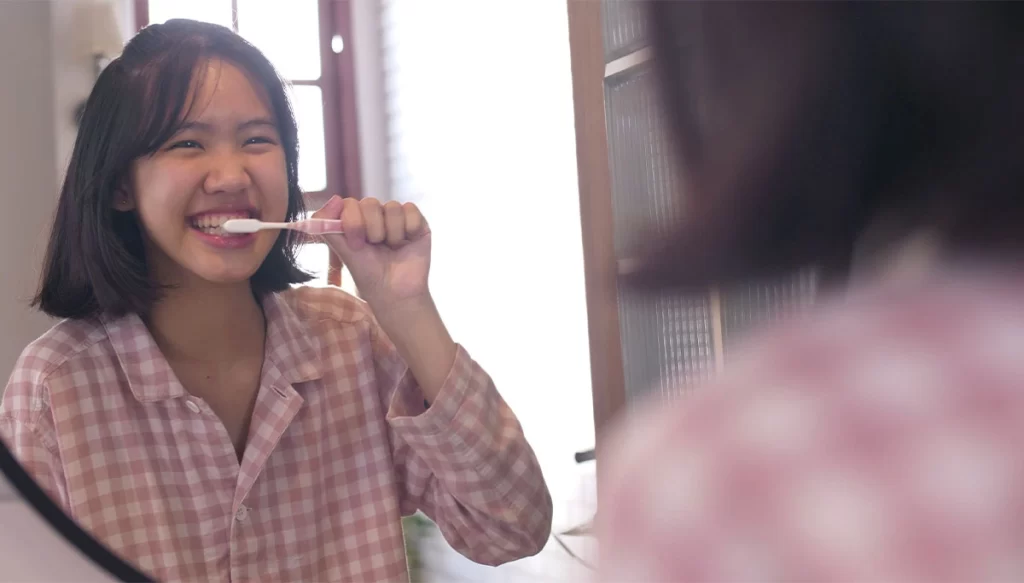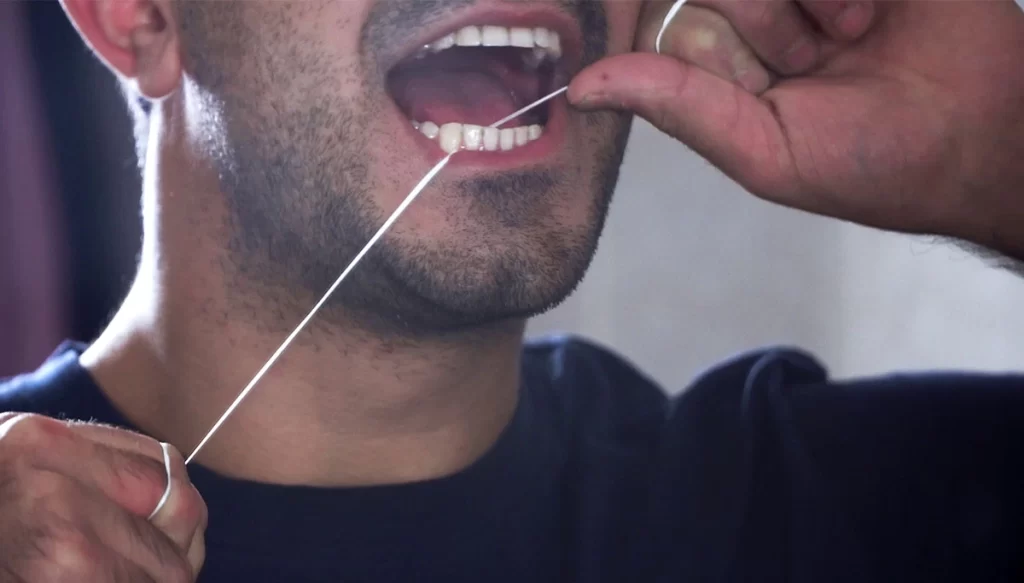You’ve invested in dental veneers and now have a confident, radiant smile that turns heads. But achieving that perfect smile is only the beginning. Veneers, while durable and stain-resistant, are not indestructible. They require consistent care and maintenance to stay looking their best for years to come.
A common misconception is that veneers act like shields that protect teeth from decay and damage. While they do cover the visible front surface of the teeth, the backs of your teeth remain exposed to bacteria, acids, and plaque. This means you’re still vulnerable to cavities, gum disease, and enamel erosion. Whether your veneers are porcelain, composite, no-prep, or removable, proper care is essential to extend their lifespan.
In this guide, we’ll explore the best daily habits, diet adjustments, and professional care tips to keep your veneers in excellent condition while preserving your overall oral health.
Daily Care Routine for Veneers
The care routine is much the same as caring for natural teeth, but there are some key differences to keep in mind. Consistency is vital; you cannot skimp on oral hygiene just because your teeth look perfect from the outside.
1. Brush Twice a Day (Gently)

Brushing twice daily is the foundation of good oral hygiene. Use a soft-bristled toothbrush to avoid scratching the surface of your veneers. A fluoride-based, non-abrasive toothpaste is recommended to protect both your natural teeth and the bonding material that holds veneers in place.
Avoid:
- Whitening toothpastes with gritty abrasives
- Baking soda and charcoal powders
- Harsh scrubbing techniques
These products and methods can dull the shine of your veneers and wear down their surface. Instead, consider your veneers as delicate glassware; they need to be cleaned carefully but effectively.
2. Floss Daily

Flossing is essential for removing food particles and plaque from between your teeth and along the line of your gums. This is especially important with veneers, as the junction between the veneer and gums can easily trap bacteria, leading to irritation or gum disease.
If traditional floss feels too harsh or awkward, consider investing in a water flosser, which gently washes debris from tight spaces without tugging at your veneers.
Tip: Always use a gentle technique—avoid snapping floss down against your veneers, which can stress the bonding material.
3. Use an Alcohol-Free Mouthwash
Not all mouthwashes are suitable for veneers. Alcohol-based formulas can gradually weaken the bonding material, making veneers more likely to loosen. Instead, opt for an alcohol-free mouthwash designed for sensitive teeth or gum care. These products help reduce bacteria, freshen your breath, and protect your gums without compromising veneer stability.
4. Rinse with Water After Meals and Drinks
Brush or rinse your mouth with plain water after eating and drinking to remove any food debris and to minimize staining. If brushing immediately isn’t possible, a quick rinse can make a big difference.
5. Schedule Regular Check-Ups
Scheduling professional dental check-ups every six months is essential, not just for polishing veneers but also for monitoring the health of your gums and natural teeth. Your dentist will also check the bonding material and make sure your veneers are still secure.
Professional cleanings can remove stubborn surface stains that at-home care cannot, keeping your veneers looking fresh and natural.
Whitening and Stain Prevention
When you first leave your dentist’s office with new veneers, they look pristine, perfectly white, glossy, and smooth. But over time, certain habits and foods may cause them to lose their brightness.
It’s important to note that veneers don’t respond to at-home whitening kits in the same way natural enamel does. In fact, some whitening products can damage veneers or cause uneven coloration between veneers and natural teeth.
If your veneers begin to look dull or stained, the best thing you can do is visit your dentist. They can professionally polish your veneers or, if discoloration is significant, discuss replacing them.
Tips for Preventing Veneer Stains
- Limit coffee, tea, red wine, and dark, acidic sauces.
- Brush or rinse your mouth after consuming staining or acidic foods.
- If you smoke, consider quitting. Tobacco can cause stubborn stains at the edges of veneers and harm gum health.
Diet and Lifestyle Adjustments
Your daily diet plays a major role in the health and longevity of your veneers. Certain foods and drinks can chip, stain, or weaken them over time. By being mindful of what you eat, you can protect your investment.
Hard and Sticky Foods
Avoid chewing on hard items like ice, bones, or popcorn kernels, which can crack veneers. Sticky foods such as toffee, caramel, or chewing gum can pull at the bonding material. Instead of biting directly into hard fruits or bread, cut them into smaller pieces and chew with your back teeth.
Acidic Foods and Drinks
Acid erodes natural enamel and can compromise veneer bonding. Be cautious with:
- Citrus fruits (lemons, limes, grapefruit, oranges)
- Fizzy or carbonated drinks (including “diet” sodas and sparkling water in excess)
- Fruit juices (especially concentrated ones)
Whenever possible, consume fruit whole instead of juiced, and rinse with water afterward to neutralize acid.
Alcohol Consumption

Heavy alcohol use doesn’t just affect your general health—it can also soften bonding agents and make veneers more fragile. Moderation is key if you want your veneers to last.
Protective Habits Beyond Cleaning
1. Don’t Use Your Teeth as Tools
Avoid opening packaging, tearing tags, or chewing pens. These habits can chip veneers.
2. Wear a Nightguard
If you clench or grind your teeth during the night (bruxism), consult your dentist who can fit you with a custom nightguard to protect both your veneers and natural teeth from excessive wear.
3. Stop Smoking
iIn addition to staining veneers, smoking contributes to gum disease, which can compromise veneer stability.
4. Be Mindful of Pressure
Even biting fingernails or crunching ice cubes can damage veneers. Treat them like you would your natural teeth—with care and caution.
When to Seek Professional Dental Help
Even with the best care, veneers can sometimes develop problems. Knowing when to call your dentist can save you from more serious issues later.
Signs of Veneer Problems
- Physical damage: Cracks, chips, or visible fractures.
- Loose veneers: Movement or a sensation that the veneer is not secure.
- Visible gaps: Food trapping at the edges, leading to decay or gum irritation.
- Pain or sensitivity: Lingering discomfort, especially when chewing or drinking hot/cold beverages.
- Gum issues: Swelling, redness, or bleeding near the veneers.
- Discoloration at the gumline: A dark line may indicate bonding material breakdown.
- Changes in bite: If chewing feels different or uncomfortable.
If any of these symptoms appear, don’t attempt to fix your veneers yourself. Instead:
- Avoid chewing on the affected side.
- Do not try to re-glue or repair a veneer at home.
- Bring any broken fragments to your dentist for assessment.
Your dentist may polish, re-bond, or replace a veneer depending on the severity of the problem.
Cosmetic Dentistry in Boynton Beach
Veneers are more than a cosmetic upgrade; they are an investment in your confidence and quality of life. With consistent daily care, smart dietary choices, and regular dental visits, your veneers can remain strong, stain-free, and beautiful for many years. For further advice or to schedule an appointment, call Eriks Dental Group, Boynton Beach today at 561-733-4004!

